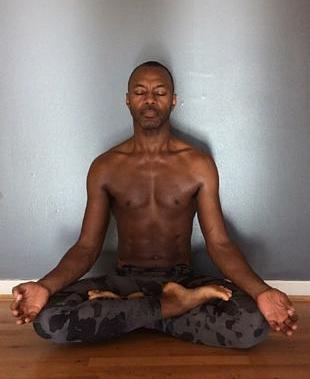We all make mistakes. That’s a fact of life. What happens next, though, can have a profound affect on how we feel and act in the future.
Mistakes are a tool that we can use to practice self-awareness and self-forgiveness. When we are mindful, we can identify the root causes of our behaviour. Do you lash out at the end when you’re tired? Do you project your feelings onto others? Do you fail to acknowledge other people’s efforts? Do you forget to apologise when you’re wrong? Observing these actions means that you can change them.
Self-forgiveness goes hand-in-hand with self-awareness.

Once you see the situations or emotions that trigger mistakes, you understand that your action is not because you’re a bad person — you are simply responding to stress. Perhaps not in the most healthy way, but that is something you can address.
This parable is a good example of how self-awareness and forgiveness can turn a mistake into a positive:
There were once two monasteries, each located close to a big city. In one monastery, the students were told that human beings were sinners and that intense vigilance and penance were the only ways the students could avoid their sinful tendencies. In the other monastery, the students were encouraged to believe in their fundamental goodness, and to trust their hearts. One day, a young man in each of these monasteries decided that he needed a respite from monastic life. Each boy sneaked out his dormitory window, hitched a ride to the nearby city, found a party, and ended up spending the night with a prostitute. The next morning, the boy from the “sinner” monastery was overcome with punishing remorse. He thought, “I’ve fallen irrevocably from the path. There’s no point in my going back.” He didn’t return to his monastery and soon became part of a street gang.
The second boy also woke up with a hangover. But his response to the situation was very different. “That was not as satisfying as I imagined it would be,” he thought. “I don’t think I’ll do that again anytime soon.” Then he went back to his monastery, climbed in the window, and was admonished for sneaking out at night. My teacher would say that when we believe that we are sinners, a very small slip can send us spiraling into a pattern of self-destructive action. But when we know, as the yoga sages tell us, that we are fundamentally divine, that we are all Buddhas, it’s much easier to forgive our selves for the bad or unskillful things we do. It’s also easier to change our behavior. So the real solution to our problematic guilty feelings is to recognize, over and over again, the light of God’s love that illuminates our heart.
Next time you screw up, don’t beat yourself up, and don’t ignore it. Take some time to mindfully consider the situation and move towards a positive outcome.
When has a mistake helped you make a positive change? Share your story in the comments.